Content of the Article
The adrenal glands are located above the kidneys. These glands produce most of the hormones the body needs for normal functions.
Addison's diseaseIt occurs when the adrenal cortex is damaged and the adrenal glands do not produce enough cortisol and aldosterone steroid hormones.
Cortisolregulates the body's response to stressful situations. Aldosterone helps sodium and potassium regulation. The adrenal cortex also produces sex hormones (androgens).
What is Addison?
Addison's diseaseoccurs when a person's adrenal glands do not produce high enough levels of many important hormones, including cortisol and sometimes aldosterone.chronic adrenal insufficiency is another name for the condition called.
The adrenal glands are located just above the kidneys and have an important role in producing adrenaline-like hormones and corticosteroids, which have many functions both in times of acute stress and just in daily life.
These hormones are necessary to maintain homeostasis and send "instructions" to organs and tissues in the body. Addison's diseaseHormones affected include glucocorticoids (such as cortisol), mineralocorticoids (including aldosterone) and androgens (male sex hormones).
While this condition can be life-threatening in some cases, symptoms can usually be managed with hormone replacement therapy.
Addison's Disease Causes
Disruption of the adrenal gland
Disturbances in hormone production in the adrenal glands Addison's diseasecause na. This deterioration can be caused by a number of factors, including an autoimmune disorder, tuberculosis, or a genetic defect.
However, around 80 percent of most Addison's disease cases are due to autoimmune conditions.
The adrenal glands stop producing enough steroid hormones (cortisol and aldosterone) when 90 percent of the adrenal cortex is destroyed.
As soon as the levels of these hormones begin to decrease, Addison's disease signs and symptoms begins to emerge.
Autoimmune conditions
The immune system is the body's defense mechanism against disease, toxin, or infection. When a person is sick, their immune system produces antibodies that attack anything that causes them to get sick.
Some people's immune systems may start attacking healthy tissues and organs - this autoimmune disorder It called. What are impacted teeth? When one or more teeth fails to grow in the correct position and is therefore held below the normal gum line, it is called an impaction. This can be complete, such as completely unerrupted (buried) third molars (wisdom teeth) or partial when just part of the tooth is visible in the mouth. Why are impactions important? For best function and appearance the teeth should grow in a healthy alignment. When one or more teeth is impacted, this can affect the function of that tooth but also the function and appearance of other teeth. Whether all impactions should be treated is still controversial and your dentist and oral and maxillofacial team can explain the advantages and disadvantages or treatment for you, which is usually surgical.
Addison's disease In the case, the immune system attacks the cells of the adrenal glands, slowly reducing their work.
That are the result of an autoimmune condition Addison's disease, autoimmune Addison's disease It is also called.
Genetic Causes of Autoimmune Addison's Disease
Recent research has shown that some people with certain genes are more likely to have an autoimmune condition.
Addison's diseaseAlthough the genetics of the condition are not fully understood, the genes most commonly associated with the condition belong to a family of genes called the human leukocyte antigen (HLA) complex.
This complex helps the immune system differentiate between the body's own proteins and those made by viruses and bacteria.
Autoimmune Addison's disease many patients with hypothyroidism, type 1 diabetes or at least one other autoimmune disorder such as vitiligo.
Tuberculosis
Tuberculosis (TB) is a bacterial infection that affects the lungs and can spread to other parts of the body. If tuberculosis reaches the adrenal glands, it can severely damage them and affect their hormone production.
Tuberculosis patients have a higher risk of damage to the adrenal glands, which in turn means their Addison's disease increases the probability of development.
Tuberculosis is now less common, so what caused this condition Addison's disease cases are also rare. However, there are higher rates in countries where TB is a major problem.
Other reasons
Addison's diseasecan also be caused by other factors affecting the adrenal glands:
A genetic defect where the adrenal glands are not developing properly
A bleeding
Adrenalectomy - surgical removal of the adrenal glands
Amyloidosis
An infection such as HIV or common fungal infection
Cancer that has metastasized to the adrenal glands
Secondary adrenal insufficiency
If the pituitary gland becomes ill, the adrenal glands can also be adversely affected. Normally, the pituitary produces adrenocorticotropic hormone (ACTH). This hormone stimulates the adrenal glands to produce hormones.
If the pituitary is damaged or diseased, less ACTH is produced and as a result, less hormones are produced by the adrenal glands, even if they are not diseased themselves. This is called secondary adrenal insufficiency.
Steroids
Some people taking anabolic steroids such as bodybuilders Addison's disease the risk is higher. Hormone production, especially caused by taking steroids for a long time, can impair the ability of the adrenal glands to produce healthy hormone levels - this can increase the risk of developing the disease.
Glucocorticoids such as cortisone, hydrocortisone, prednisone, prednisolone, and dexamethasone act like cortisol. In other words, the body believes an increase in cortisol and suppresses ACTH.
As mentioned above, a decrease in ACTH causes less hormones to be produced by the adrenal glands.
The second reason to use the lupus or those who take oral corticosteroids for conditions such as inflammatory bowel disease and suddenly stop them may experience secondary adrenal insufficiency.
What are the Symptoms of Addison's Disease?
Addison's disease People with it may experience the following symptoms:
Muscle weakness
Weakness and fatigue
Darkness in skin color
Weight loss or decreased appetite
Decrease in heart rate or blood pressure
Low blood sugar levels
Sores in the mouth
Salt request
- Nausea
- Vomiting
Addison's disease People living with may also experience neuropsychiatric symptoms such as:
Irritability or depression
Low energy
- Sleeping disorders
Addison's disease not treated for too long, Addison crisis could become. Addison crisisThe symptoms associated with the disease are as follows:
Worry and boredom
- Delirium
Visual and auditory hallucinations
An untreated Addison crisis It can lead to shock and death.
Who is at Risk for Addison's Disease?
Persons in the following situations, Addison's disease are at a higher risk for:
Those with cancer
- Anticoagulant areas (blood thinners)
Have chronic infections such as tuberculosis
Those who have surgery to remove any part of the adrenal gland
Those with type 1 diabetes or an autoimmune disease such as Graves' disease
How Is Addison's Disease Diagnosed?
The doctor will ask about medical history and symptoms. He or she will perform a physical exam and order some lab tests to check the potassium and sodium levels.
The doctor may also order imaging tests and measure the hormone level.
Addison's Disease Treatment
The treatment for the disease will depend on what caused the condition. The doctor may prescribe medications that regulate the adrenal glands.
It is very important to follow the treatment plan created by the doctor. Untreated Addison's disease, Addison crisiswhat can lead.
The condition has not been treated for too long and Addison crisis If it has progressed to a life-threatening condition called, the doctor may first prescribe medication to treat it.
Addison crisiscauses low blood pressure, high potassium in the blood, and low blood sugar levels.
Medicines
It may be necessary to use a combination of glucocorticoid drugs (drugs that stop inflammation) to cure the disease. These drugs will be taken for the rest of your life.
Hormone replacements can be given to replace hormones that the adrenal glands do not make.
Addison's Disease Natural Treatment
Consume enough salt
Addison's diseasecan cause low aldosterone levels, which increases the need for salt. Try to get the increased salt needs from healthy foods such as broth and sea salt.
Take calcium and vitamin D
Taking corticosteroid medications has been associated with a higher risk of osteoporosis and loss of bone density, which is enough calcium and that consuming vitamin D is critical for maintaining bone health.
Calcium intake can be increased by eating dairy products such as raw milk, yogurt, kefir and fermented cheese, green vegetables such as cabbage and broccoli, and foods high in calcium such as sardines, beans and almonds.
Vitamin D The best way to increase levels naturally is to spend some time in the sun every day with the skin exposed.
Take an anti-inflammatory diet
Foods / drinks to limit or avoid to support the immune system include:
Too much alcohol or caffeine that interferes with the sleep cycle and can cause anxiety or depression
Most sources of sugar and sweeteners (including high fructose corn syrup, packaged sweet products and refined grains)
Avoid packaged and processed foods whenever possible, as they contain many types of artificial ingredients, preservatives, sugar, etc.
Hydrogenated and refined vegetable oils (soybean, canola, safflower, sunflower and corn)
Replace these with natural, unrefined foods whenever possible. Some of the best options included in the anti-inflammatory diet include:
Natural, healthy oils (such as olive oil)
- Plenty of vegetables (especially all leafy greens and cruciferous vegetables such as cauliflower, broccoli, Brussels sprouts)
Wild-caught fish (such as salmon, mackerel or sardines that provide anti-inflammatory omega-3 fatty acids)
- High quality animal products that are grass-fed, pasture-raised and organic (e.g. eggs, beef, chicken and turkey)
Sea vegetables such as seaweed (high amount of iodine to support thyroid health)
Celtic or Himalayan sea salt
High-fiber foods such as strawberries, chia seeds, flax seeds, and starchy vegetables
- Probiotic foods such as kombucha, sauerkraut, yogurt and kefir
Ginger, turmeric, parsley, etc. herbs and spices
Manage stress
Get quality sleep and get enough rest. Aim for eight to 10 hours of sleep each night, depending on your specific needs.
Other ways to help manage stress include:
- Doing hobbies or something fun every day
Meditation
Relaxing breathing techniques
- Spending time outdoors, in sunlight and in nature
Maintaining a consistent and reasonable work schedule
Eating on a regular schedule and avoiding too many stimulants such as alcohol, sugar, and caffeine
Seeking professional help as needed to deal with major life events or trauma
Supplements that support the stress response
Some supplements can help support the immune system and cope with stress. Examples that might work are:
Medicinal mushrooms such as reishi and cordyceps
Adaptogen herbs such as ashwagandha and astragalus
- Ginseng
- magnesium
Omega-3 fatty acids
In addition to a probiotic supplement, taking a quality multivitamin that provides B vitamins, vitamin D and calcium can also support gut health and defend against nutrient deficiencies.
What Happens If Addison's Disease Is Not Treated?
Status adrenal crisisIf it progresses and is not treated, people may experience severe symptoms and even die suddenly, so this is a condition that must be taken very seriously.
Adrenal crisis Its intervention usually involves high-dose steroid injections, fluids, and electrolytes to help restore the function of the adrenal and pituitary glands.
Addison's disease do you live You can leave a comment.

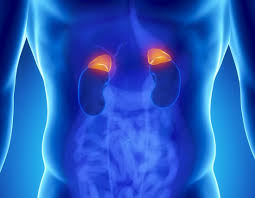


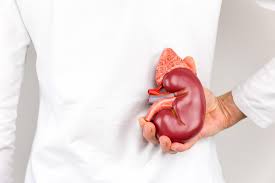





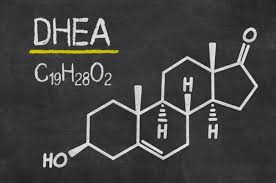

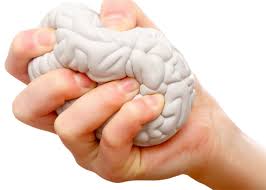
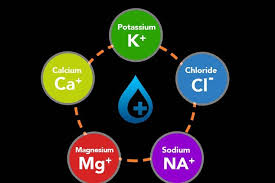

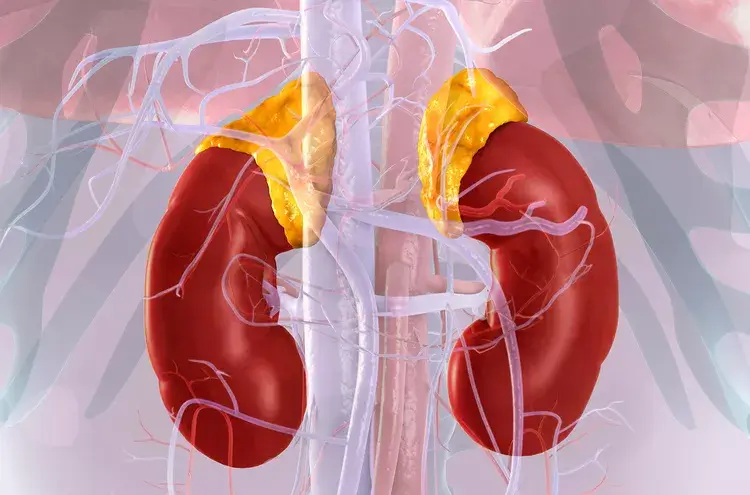



Thank you for the detailed information you provided. I'm an Addison's patient.
Yes my daughter Addison desess patients .her age is 8 years old